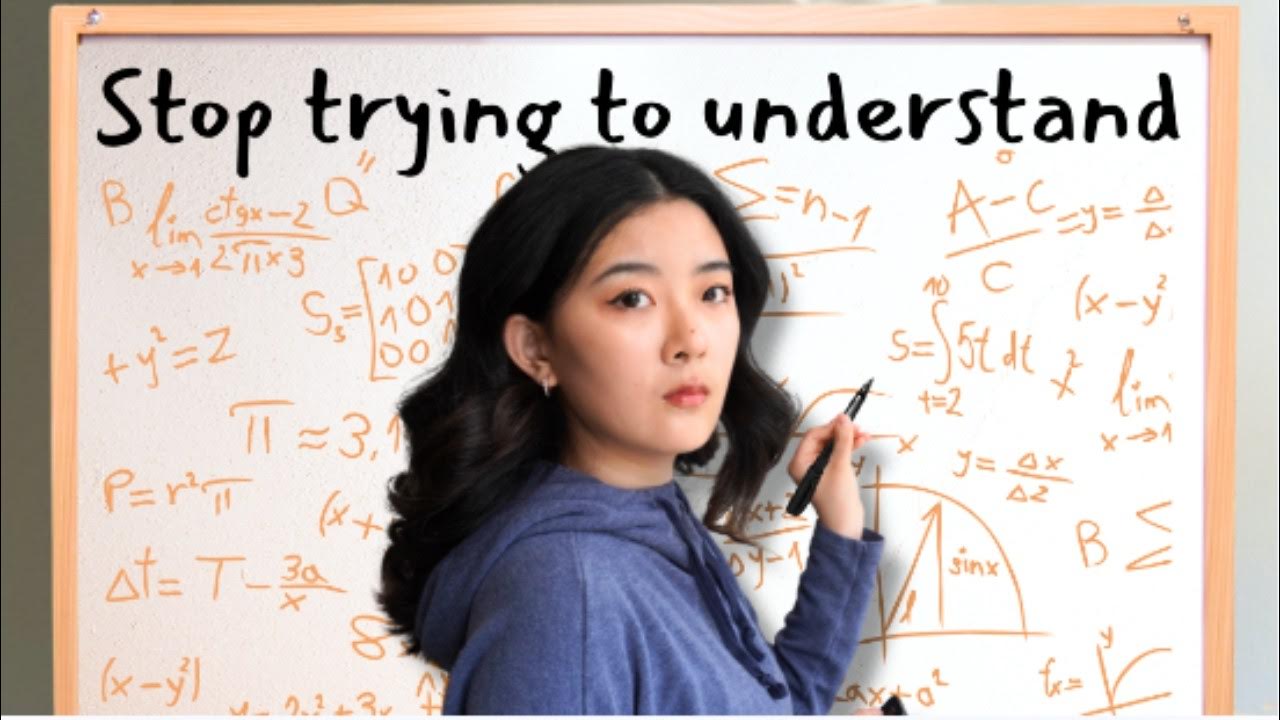Anyone Can Be a Math Person Once They Know the Best Learning Techniques | Po-Shen Loh | Big Think
Summary
TLDRIn this insightful discussion, the speaker argues that everyone could become a 'math person' with the right mindset and approach. They highlight the importance of mathematical reasoning in decision-making, distinguishing it from rote memorization of formulas. The speaker emphasizes that math is about building logical connections rather than simply memorizing facts. Unlike other subjects, math relies on interconnected concepts, making it fragile if gaps in understanding occur. By addressing these gaps at one's own pace, the speaker believes math can become the easiest and most accessible subject for everyone.
Takeaways
- 😀 Math is accessible to everyone if they want to understand it and have the right approach.
- 😀 The focus of math should be on reasoning and decision-making, rather than memorizing complex formulas.
- 😀 Sines, cosines, and logarithms are valuable for understanding how basic reasoning principles lead to surprising conclusions.
- 😀 Math has historical value, with theorems acting as case studies of triumphs in reasoning and logic.
- 😀 Math concepts are deeply connected in a chain of dependencies, making them different from other subjects like history.
- 😀 Missing a concept in math can lead to being lost because of its chained nature; one gap can disrupt understanding of future topics.
- 😀 History, unlike math, has broader concepts that don't rely on each other as strongly, making it less fragile to gaps in learning.
- 😀 Math's difficulty often comes from its deep conceptual chains, making learning fragile if students miss foundational ideas.
- 😀 Education should allow students to learn at their own pace and fill in gaps in understanding as they arise.
- 😀 If everyone were able to fill in gaps in their math knowledge as needed, math could be perceived as easier than other subjects.
Q & A
What does the speaker mean by 'everyone could be a math person if they wanted to'?
-The speaker believes that anyone can become proficient in mathematics, provided they have the desire to engage with and understand it. This emphasizes the importance of motivation and the willingness to learn.
How does the speaker differentiate between 'math' and 'decision making'?
-The speaker views math as a tool for reasoning and making decisions, rather than focusing solely on rote memorization of formulas. Math, in this context, is about the principles of logical thinking and analysis that can be applied to real-world decision making.
What does the speaker think is the key to understanding mathematics?
-The speaker suggests that the key to understanding math is grasping the underlying principles of reasoning, not just memorizing formulas like sines, cosines, and logarithms. These formulas are useful in demonstrating how logical principles work in mathematics.
Why does the speaker believe that history and math are different in terms of learning?
-Math is unique because its concepts are interdependent and form a chain of reasoning, where missing one link can result in not understanding later concepts. In contrast, history is not as reliant on a sequence of concepts, and missing one unit does not necessarily hinder overall understanding.
What does the speaker mean by 'math has fewer concepts, but they're chained deeper'?
-The speaker is highlighting that math has fewer core concepts compared to subjects like history, but these concepts are deeply interconnected. If a student misses a fundamental concept, it can disrupt their understanding of subsequent material.
How does the speaker explain the challenges of learning math?
-The speaker explains that the challenge of learning math lies in the sequential nature of its concepts. If a student misses or forgets a concept, it creates gaps in their understanding that can make it difficult to continue learning effectively.
What solution does the speaker propose to overcome the difficulties in learning math?
-The speaker suggests allowing students to learn at their own pace and providing ways for them to fill in any gaps in their knowledge as they are identified. This would allow for a more personalized and effective learning experience.
Why does the speaker believe math can be the easiest subject to understand?
-The speaker believes that if students could fill in the gaps in their understanding, math would become easier than other subjects. This is because the principles of math, once fully understood, are clearer and more logically connected than many other fields of study.
How does the speaker view the role of 'prerequisites' in learning math?
-Prerequisites are seen as crucial in math because each concept builds on the previous one. Missing a prerequisite can lead to gaps in understanding, which may make it difficult to grasp more advanced material.
What is the overall message the speaker conveys about learning math?
-The speaker's overall message is that anyone can be good at math if they are given the opportunity to learn at their own pace and fill in any gaps in their understanding. With the right approach, math can be accessible and even enjoyable for everyone.
Outlines

此内容仅限付费用户访问。 请升级后访问。
立即升级Mindmap

此内容仅限付费用户访问。 请升级后访问。
立即升级Keywords

此内容仅限付费用户访问。 请升级后访问。
立即升级Highlights

此内容仅限付费用户访问。 请升级后访问。
立即升级Transcripts

此内容仅限付费用户访问。 请升级后访问。
立即升级浏览更多相关视频

Becoming good at math is easy, actually

Matemática do ZERO ao cálculo ( Guia completo )

Boosting Math

Why are some people bad at maths? - CrowdScience podcast, BBC World Service

Want to be happier? Stay in the moment | Matt Killingsworth

Ohhh, jadi begini cara bedain KOMBINASI sama PERMUTASI | Pembahasan materi KOMBINASI PERMUTASI
5.0 / 5 (0 votes)
